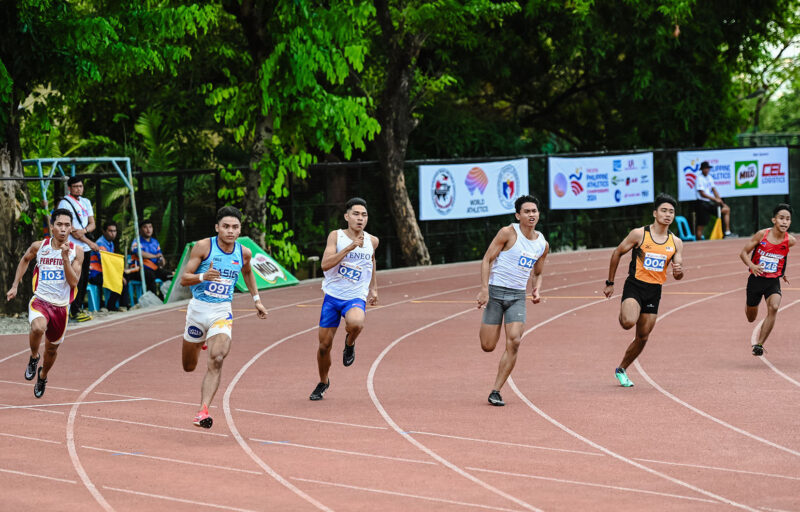With the Ateneo celebrating its 40th anniversary of coeducation this year, there is an understanding that the Filipino woman has experienced a number of social, economic and political changes in recent history.
However, doubts remain as to whether gender equality in Philippine society has truly been achieved.
Dr. Lourdes Rallonza of the Political Science Department believes one must take care when attempting to assess the progress of feminism in the country. “[The achievements of feminism] should not be just on the basis of hearsay,” she says, noting that, like any other ideology, feminism needs to be thoroughly studied. However, she fears that the Internet has made it a stereotyped and banal concept.
That said, it is necessary to properly evaluate the status of Philippine women in society today.
The true reach of women empowerment
According to the most recent data from the World Economic Forum’s (WEF) 2012 Global Gender Gap Index, the Philippines is 8th out of 135 countries in terms of achieving gender balance. This ranking was also the highest among all the included Asian countries. A 2012 article from Interaksyon also mentioned that WEF recognizes the Philippines as “the only Asian country this year to have closed the gender gap in both education and health.”
However, Rallonza explains that it is essential that people “[scrutinize] the details of these indicators” because to say that we have achieved gender balance is a “huge claim.”
“I’m coming from the vantage point of women who are not normally reached by these gender indicators; women who are basically in the remotest part of the country that rarely actually even problematize their rights because it’s basically their whole way of socialization,” she says.
Rallonza adds, “We’ve had gains in the Philippines but that doesn’t mean that we have to stop, because there are still a lot of challenges along the way.”
She mentions that violence against women is still very much present in current society. She notes that instances of harassment against women are heightened during times of armed conflict, a fact most people are unaware of.
For instance, the ongoing conflict in Zamboanga has raised numerous allegations of rape in the area, both of grown women and young girls. However, this matter is often left out of media reports.
Queena Lee-Chua of the Mathematics Department also believes that women are still not on equal footing with men in Philippine society. She uses the controversial Reproductive Health Law as an example, saying that “women don’t have control over their own health [or even their own] bodies.”
She also draws attention to the numerous women from lower economic classes who are forced to give birth to children that they cannot support. However, she clarifies that, though she advocates contraception, “we’re not advocating abortion—abortion is a sin.”
According to Lee-Chua, the Philippines still has a long way to go before gender equality will be truly be achieved. “The system is still patriarchal,” she says.
Holding up half the sky
While she maintains that inequality is still very much present in Philippine society, Lee-Chua says that, based on her own experiences as an Ateneo student in the 1980s and as a faculty member today, she has never felt that women’s rights were being infringed on in the university.
“There’s always room for improvement but I think definitely women are not looked down upon [in the Ateneo]. In fact, many of the male students even concede that the women are more hardworking in general and earn better grades,” she says.
However, Lee-Chua’s opinion seems to indicate that the status of women in the Ateneo has vastly improved since co-education was first implemented 40 years ago.
In a 2012 article from The GUIDON entitled “XX”, Lisa Nakpil (AB Eco-H ’77), one of the first batch of female undergrads explained that the treatment of women then was far from welcoming. “Coeds were very much an oddity—sort of like a freak-show curiosity. And I often felt that my male classmates and teachers were astounded that we could even spell or do sums,” she says.
Misogyny then would not have inspired the same rebuke it would today. “Quite a few times, total strangers would come up to me at the cafeteria and say, ‘You do know you’re wasting a perfectly good slot in this school when you’re just going to wind up getting married?’ … I am told that the other coeds had to suffer all kinds of what would be today classed as harassment,” Nakpil adds.
However, such treatment did not seem to deter women from enrolling in the university. Since 1995, women have outnumbered men in the Ateneo. Notable female alumni include Supreme Court Chief Justice Maria Lourdes Sereno (AB Eco ’80), former Akbayan representative Risa Hontiveros (AB SocSci ‘87), CEO and President of the Filinvest Group Josephine Gotianun Yap (BS Mgt ‘75) and visually impaired summa cum laude graduate Roselle Ambubuyog (BS MA ‘01).
Moreover, statistics show that high academic performance among women is not a case unique to the Ateneo. According to statistics gathered by the National Statistical Coordination Board in 2013, Filipina women have higher literacy rates and stronger educational attainment compared to their male counterparts. This data are but some of the many that show proof of the lessening of the gap between men and women.
After 40 years of coeducation in the Ateneo de Manila University, it is clear that significant changes have steadily closed the gap between the two sexes, particularly when it comes to education attained and standards raised by women.
According to Lee-Chua, education is essential to minimizing the gender gap in society. “The moment you have education, you can go beyond prejudices… you can dream of a world which is better.”




